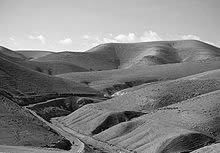Month: July 2015
Regenesis
You hovered o’er the waters
as you hovered o’er my soul.
For I was void and without form
darkness brimmed my soul.
You spoke light into being
as you illumed my heart.
You rent my darkness from your light
my soul aroused to start.
You reforged me in the image
of your righteous holy one.
And charged my soul be fruitful
Til its time on earth be done.
Worship
I offered my worldly wealth to you,
Yet my gift did not impress.
I committed my time to work your deeds,
Still my soul you did not bless.
I enslaved my body, broke its demands,
But it brought not your delight.
I stood on the corner and preached your word,
And my efforts afforded no light.
I sought out the poor and answered their need,
Still your joy lingered far, far distant.
Daily I studied your word with zeal,
Although your peace was nonexistent.
Sacrifices were my next pursuit,
Though I failed your delight to gain.
I struggled mightily to do the right,
Yet in my heart I felt but pain.
I finally stopped and searched your heart,
My soul required its purpose.
I offered you my heart, my soul, my all
And you reveled in my worship.
Too old to fight?
Caleb. My favorite character in the Bible – bar none. Moses defied a great empire. David vanquished nations. Peter charged into the night against trained soldiers. Paul was just reckless. But Caleb. Caleb was magnificent. I know what you’re thinking, “Caleb? Sure he had faith. He went into the Promised Land. But so did Joshua. What’s so great about Caleb?”
We all know how Caleb started. He and Joshua went on a covert mission to the Promise Land. While ten others shriveled in fear, Caleb proclaimed “Let’s go take the land, we can do it.” But, the people sided with the ten and against Caleb … and God. And God responded quickly. The ten were struck dead. The people were promised retribution. Caleb was promised an inheritance. Contrite, the people tried to take the land. They failed.
 But that’s not why I love Caleb. That’s not why he is my favorite. I love Caleb for how he ended his life. Fast forward 40 years. Forty years of wandering the desert. Forty years of waiting. Forty years of discipline for a rebellion he opposed. After 40 long years, the time had come to take the land. Not everyone made it in. Moses did not go. The other ten did not go. None that left Egypt would go. Except Caleb. Except Joshua.
But that’s not why I love Caleb. That’s not why he is my favorite. I love Caleb for how he ended his life. Fast forward 40 years. Forty years of wandering the desert. Forty years of waiting. Forty years of discipline for a rebellion he opposed. After 40 long years, the time had come to take the land. Not everyone made it in. Moses did not go. The other ten did not go. None that left Egypt would go. Except Caleb. Except Joshua.
Five years later, the fight was over. The land had been conquered. Almost. But the time had come. Caleb’s time. Joshua sectioned off the land. And Caleb spoke once more.
So here I am today, eighty-five years old! I am still as strong today as the day Moses sent me out; I’m just as vigorous to go out to battle now as I was then. Now give me this hill country that the LORD promised me that day. You yourself heard then that the Anakites were there and their cities were large and fortified, but, the LORD helping me, I will drive them out just as he said.
Joshua 14:10-12 (NIV)
Here stands Caleb at 85 years – he doesn’t sound like any 85 year old I know – he’s saying: “I was ready 45 years ago and at 85 I am still the man I was at 40!” Caleb was ready. Not just to possess the land but to fight the battle. I can hear him now: “I want the land promised me. I want the best piece. I want the toughest battle. Bring on the giants! I will whip them.” And he did.
Then Joshua blessed Caleb son of Jephunneh and gave him Hebron as his inheritance. So Hebron has belonged to Caleb son of Jephunneh the Kenizzite ever since, because he followed the LORD, the God of Israel, wholeheartedly.
Joshua 14:13-14 (NIV)
I sit at my computer at 55 and wonder what 85 will bring. Will I still yearn for battle? To fight the fight? That is my prayer. Not just to survive to 85, but to train for 85. To fight daily. To stay strong. To stand firm to the end. To be like Caleb. To follow God wholeheartedly.
The future contains choices. We can follow God and fight. Or have fear overtake us, atrophy, and die. Will you be a Caleb? You say you tried fighting and lost? Good! Caleb fought and lost. You qualify. God had another battle for Caleb. God has another battle for you. What land will belong to you because you followed the Lord, the God of Israel, wholeheartedly?
The story III … what the characters tell us
So we will study our story in our attempt to find the author. We begin with the characters. Characters are usually easy to spot. They are all around us. In fact, we are one of them. But are we an important character? Perhaps we are heroes or might we even be villains? Or worse, are we simply extras that just exist to make the story seem more believable? Perhaps we are somewhere in between. So who is the hero1? The villain? If we could answer those questions perhaps the story would be understandable. There is obviously good in our story. And the hero must be “good”, right? I suppose the hero could be evil, but that seems to go against our core, our very nature.
 Let’s assume we are the hero. That is the character we would like to be, correct? The character upon whom the triumph of good versus evil depends. The character that always comes through when the night is darkest, when evil seems to be on the verge of victory. It would seem that if we are the main character we would have some grand and glorious purpose. Our character would be capable of literally changing the world forever. Does that seem like you? Me? Probably not. But we do desire to play the hero do we not?
Let’s assume we are the hero. That is the character we would like to be, correct? The character upon whom the triumph of good versus evil depends. The character that always comes through when the night is darkest, when evil seems to be on the verge of victory. It would seem that if we are the main character we would have some grand and glorious purpose. Our character would be capable of literally changing the world forever. Does that seem like you? Me? Probably not. But we do desire to play the hero do we not?
But if not us, then who is the hero of our story? There seems to be many powerful characters in our story that could fill that role. But at the same time, even the most powerful characters have serious flaws that would seem to make them unsuited to the part. Of course, all heroes have flaws, if not within themselves then in their place in the story, but the characters we experience tend to look more like villains that heroes. Even those that appear heroic at a point tend to eventually show their darker and self-serving inclinations. But there must be a hero, right? All stories have heros. We are left wondering who it could be.
Alas, maybe we are only extras. For many, our very soul cries out against the possibility. However, for others, it seems all too possible, no probable. For regardless of our position, it is all to easy to see that if we do nothing the world goes on as if it did not need us. Maybe we are not the main character, but it would be nice to think that we are more than extras. That we do have some purpose, even if we are not the main character.
Perhaps, if we are not the hero, we are part of the hero’s inner circle, members of the Knights of the Round Table or the Fellowship of the Ring. Characters upon whom the hero depends. Characters who are willing ride with the hero into hell itself if necessary. Or perhaps we are the hero’s beloved. The one for whom the hero would risk all in a pursuit of true, selfless love. Unfortunately, we have no clarity. We assume we are on the side of good, but is that true? No, we dare not even consider the possibility.
So, what have we learned? Although we live in our story, we have no idea who the characters are. Who is the hero? The villain? What part do we play? Surely this is a sad state. More importantly, we have made no gain towards our knowledge of the author. Where do we go next? Perhaps understanding the plot will reveal the author.
1 We use the term hero to refer to the principal character in our story, male or female, who has heroic qualities, performs heroic acts, and is regarded as the ideal person.
